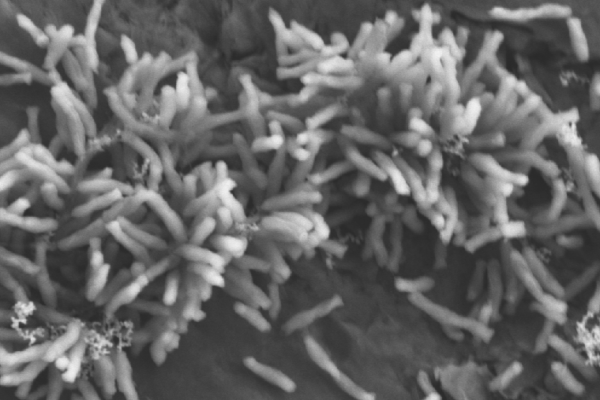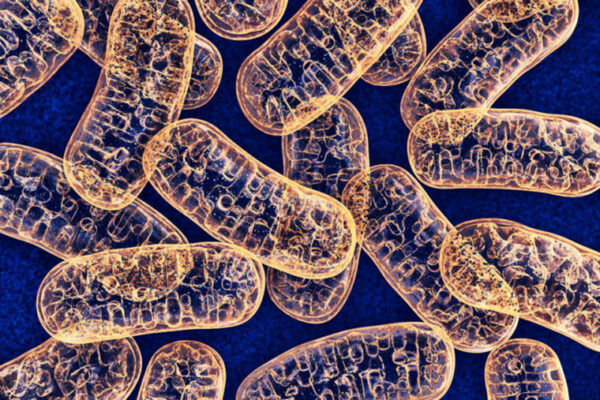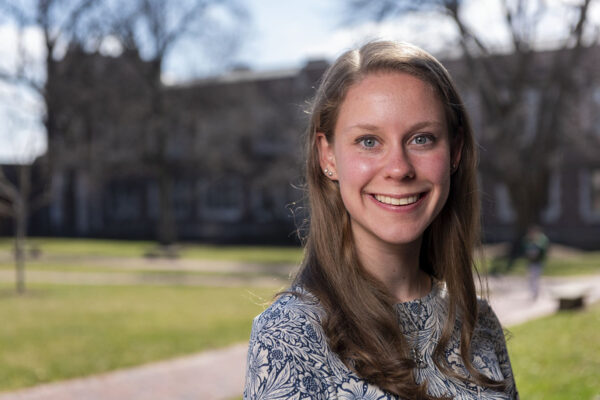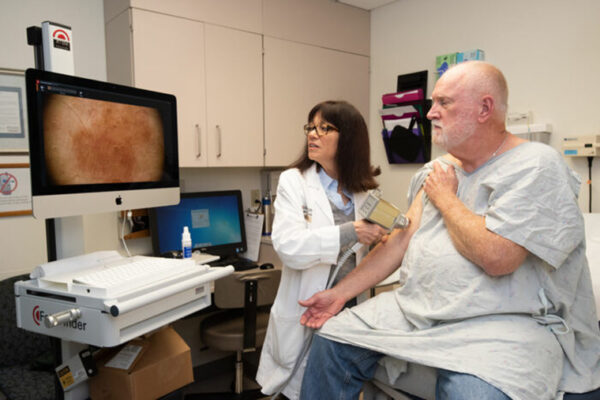How electricity-eating microbes use electrons to fix carbon dioxide
Led by Arpita Bose, assistant professor of biology in Arts & Sciences, a Washington University team showed how an electricity-eating microbe takes up electrons from conductive substances like metal oxides or rust to reduce carbon dioxide. The work is described in the journal Nature Communications.
Obese mouse mothers trigger heart problems in offspring
Mitochondria manufacture energy in every cell of the body, including heart muscle cells. A new study from the School of Medicine shows that cardiac mitochondria are abnormal in the offspring of mouse mothers that become obese due to a high-fat, high sugar diet. Those offspring then pass on the mitochondrial defects at least two more generations.
Sam Fox School to debut new facilities this fall
This fall, one of the top programs for art, architecture and design at a U.S. university — the Sam Fox School of Design & Visual Arts at Washington University in St. Louis — will unveil two major new capital projects that will transform the campus, reshape the visitor experience and firmly establish the prominence of its art museum on campus.
The newly constructed Anabeth and John Weil Hall will house state-of-the-art graduate studios, classrooms and digital fabrication spaces. A major expansion and renovation of the Mildred Lane Kemper Art Museum will strengthen visibility, better showcase the renowned permanent collection and accommodate larger and more varied special exhibitions.
Student Gorham excels in the lab, on the track
Personal experience told Lisa Gorham, captain of the Washington University in St. Louis cross-country, track and indoor track teams, that team sports and adolescent mental health are linked. But what would the data say? Gorham has just published her findings in a leading journal — a rare accomplishment for an undergraduate researcher.
How team sports change a child’s brain
Adult depression has long been associated with shrinkage of the hippocampus, a brain region that plays an important role in memory and response to stress. Now, new research from Washington University in St. Louis has linked participation in team sports to larger hippocampal volumes in children and less depression in boys ages 9 to 11.
Women shaped cuisine, culture of ancient Cahokia
Long before corn was king, the women of Cahokia’s mysterious Mississippian mound-building culture were using their knowledge of domesticated and wild food crops to feed the thousands of Native Americans who flocked to what was then North America’s largest city, suggests a new book by a paleoethnobiologist at Washington University in St. Louis. “Feeding Cahokia” sets the record straight on America’s first farmers while offering a roadmap for rediscovering the highly nutritious native foods they once cultivated, including a North American cousin of quinoa.
Topical immunotherapy keeps skin cancer risk at bay
A combination of two topical creams lowers the risk that patients will develop squamous cell carcinoma of the skin, according to new research at the School of Medicine. The combination already has been shown to clear precancerous skin lesions from sun-damaged skin.
Your March Madness chances, or putting a quintillion into focus
You — as part of the 10 percent of the American population who participates in this form of technically illegal gambling — have a 1-in-9.2 quintillion chance of picking the perfect March Madness bracket, says a statistical expert from Washington University in St. Louis.
Performance-based pay linked to employee mental-health problems, study shows
In the first big-data study combining objective medical and compensation records with demographics, researchers at Washington University in St. Louis and Aarhus University in Denmark discovered once a company switches to a pay-for-performance process, the number of employees using anxiety and depression medication increased by 5.7 percent over an existing base rate of 5.2 percent.
African Film Festival to feature award-winning films
The 14th annual African Film Festival invites St. Louisans to see eight of Africa’s most acclaimed films on the big screen. Highlights include two Kenyan films, the controversial “Rafiki,” which was banned in its own country, and “Supa Moda,” a family-friendly film that one critic called “the most important superhero movie you’ll see this year.”
View More Stories









